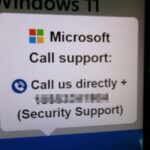FBI Issues Urgent Warning About New Extortion Scam Targeting Sensitive Corporate Data

In today’s digital landscape, ransomware has emerged as a significant threat to businesses across various sectors. Cybercriminals are increasingly targeting organizations with malicious software that locks access to critical data, demanding hefty ransoms for its release. However, the threat isn’t just confined to large corporations; it now extends to individual employees, particularly those in executive positions.
The Rising Threat of Extortion Letters
The FBI has recently alerted companies, especially those operating in the healthcare industry, about a concerning new scam involving physical ransom letters sent through the U.S. Postal Service. These letters, which falsely claim to be from the notorious ransomware group BianLian, demand exorbitant payments in Bitcoin, ranging from $150,000 to $500,000, in exchange for not leaking purportedly stolen data.
Marked as “TIME SENSITIVE READ IMMEDIATELY,” these letters allege that attackers gained access to sensitive files through social engineering tactics. However, investigations have revealed that no actual ransomware breaches have been detected in the targeted organizations, indicating that these letters are likely part of a fear-based scam designed to extort money from unsuspecting victims.
Understanding the Nature of the Scam
Sent from Boston and featuring U.S. flag stamps, the letters differ significantly in tone and language from authentic communications by BianLian. Authorities believe this indicates a calculated strategy to instill fear in organizations, convincing them to pay ransoms for breaches that may not have occurred at all. The letters often include a QR code linked to a Bitcoin wallet and may even feature a compromised password to enhance their credibility.
The Impact of Ransomware on Healthcare
Unfortunately, the healthcare industry has become a prime target for ransomware attacks, now ranking as the third most affected sector following finance and manufacturing. Reports indicate a staggering 32% increase in attacks from 2023 to 2024. These cyber threats not only jeopardize sensitive data but also disrupt hospital operations, hinder patient care, and create chaos for healthcare providers.
A notable example is the Ascension cyberattack in May 2024, which locked medical staff out of essential systems and led to significant disruptions in patient care. Initially reported to affect 500 individuals, the impact escalated to nearly 5.6 million by December. Additionally, UnitedHealth’s Change Healthcare unit experienced a massive data breach that impacted approximately 190 million individuals, making it the largest medical data breach in U.S. history.
How to Protect Yourself and Your Organization
In light of these growing threats, it is crucial for organizations to implement robust cybersecurity measures. Here are some essential strategies to safeguard against ransomware and extortion scams:
1. **Install Strong Antivirus Software**: Equip your systems with the latest security tools and regularly update all software to close potential vulnerabilities. Strong antivirus solutions can alert you to phishing attempts and ransomware threats.
2. **Implement Strong Password Policies**: Use unique, complex passwords of at least 15 characters, incorporating a mix of letters, numbers, and symbols. A password manager can help generate and securely store these passwords.
3. **Educate Employees on Cybersecurity Awareness**: Train staff, particularly executives, to recognize phishing attempts and suspicious communications, as many ransomware attacks begin with social engineering tactics.
4. **Backup Data Regularly**: Regularly back up critical data to secure, offline locations to ensure swift recovery in the event of an attack. Cloud services with encryption can enhance data safety.
5. **Utilize Two-Factor Authentication (2FA)**: Implementing 2FA adds an extra security layer, making it more difficult for cybercriminals to gain access even if they obtain login credentials.
6. **Verify Threats Before Acting**: If you receive a ransom demand, investigate its legitimacy before taking any action. Consult cybersecurity experts or law enforcement for guidance.
7. **Report Suspicious Activity**: Notify authorities such as the FBI’s Internet Crime Complaint Center if you encounter scams or ransomware threats. Reporting helps track and mitigate these criminal activities.
A Call to Action for Healthcare Institutions
Despite the growing threat landscape, many healthcare institutions lag in cybersecurity readiness. The lack of dedicated security teams often results in IT departments, untrained in cybersecurity, bearing the brunt of these responsibilities. With sensitive patient data at risk, it is crucial for the healthcare sector to prioritize cybersecurity measures and adopt a proactive approach.
As cyberattacks continue to evolve, it is only a matter of time before more hospitals and clinics face similar challenges. The time to take security seriously is now.
Do you believe that companies are doing enough to protect your data? Is the government adequately addressing the issue of cybercrime? Share your thoughts with us.
For more tech tips and security alerts, subscribe to our newsletter and stay informed about the latest in cybersecurity.



